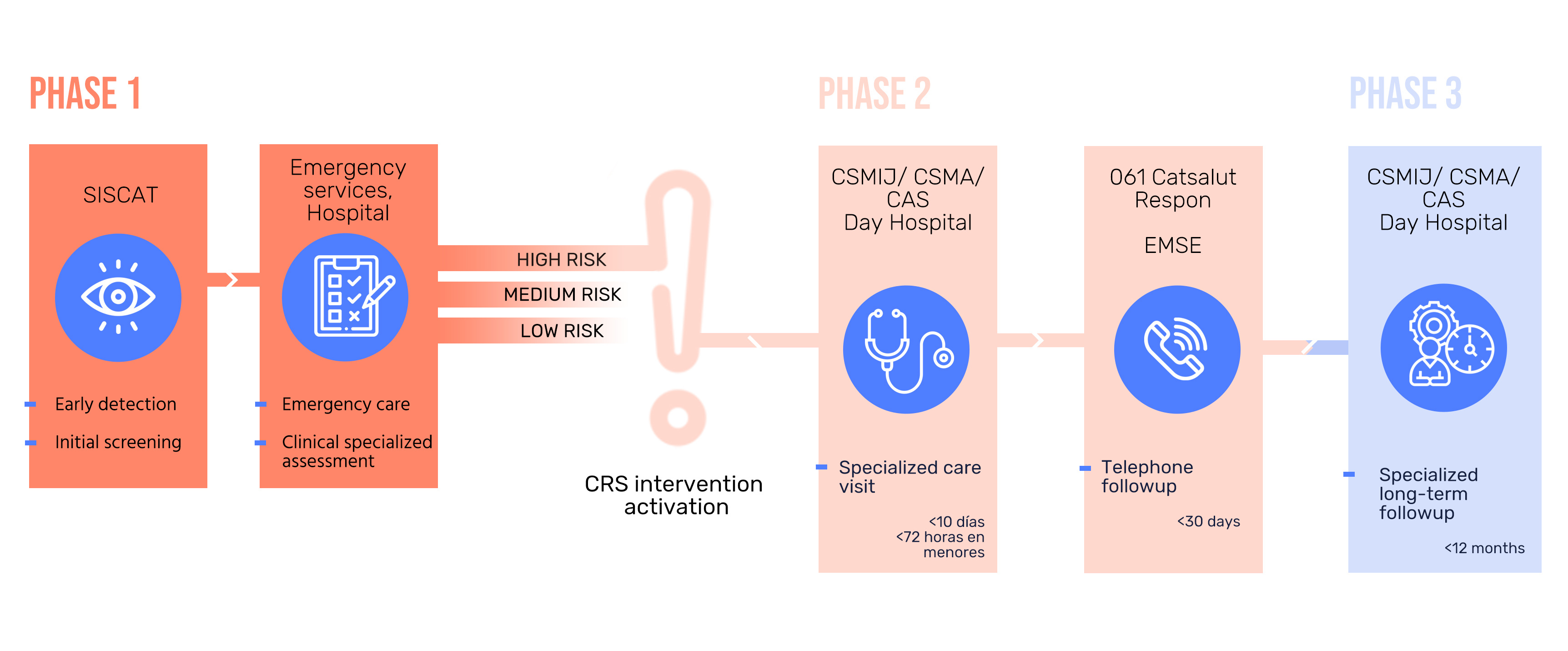The Catalonia Suicide Risk Code Programme (CSRC Programme) is a protocol-based programme consisting of suicidal behaviour healthcare and preventive interventions launched by the Department of Health of the regional Catalan government in 2014 and achieving complete coverage throughout Catalonia in 2016.
The main aim of the CSRC Programme is the early detection of persons who have made a suicide attempt or who are at high risk of suicide, and to provide urgent care and continual follow-up depending on the severity of risk. The ultimate aim is to increase survival in the population receiving medical care for suicidal behaviour and to prevent repeat suicide attempts and consequently lower mortality due to suicide in Catalonia.
The CSRC Programme includes the following: (1) a surveillance and registration system for suicidal behaviours (Suicide Risk Code registry); and (2) an indicated preventive intervention for suicidal behaviour.
The CSRC Programme consists of three phases1:
(1) Specialised care visit within 10 days (72 hours in people younger than 18 years) after hospital discharge, by the Mental Health Centre (CSMA), Centre for Child and Youth Mental Hygiene (CSMIJ), Outpatient Centre for Drug Dependence and Follow-up (CAS), Day Hospitals, to assess suicide risk and design a personally-tailored follow-up plan according to the severity of the suicide risk and concomitant psychopathological factors detected;
(2) Follow-up telephone call within 30 days after hospital discharge by the 061 Hello/Answer or the EMSE-Multidisciplinary Specialised Support Team, to assess suicide risk and health status, provide support and health counselling and to confirm that the person has received an appointment for specialist care; and
(3) Follow-up visits for 12 months by the CSMA/CSMIJ, CAS, Day Hospital or Primary Care, to reassess the severity of suicide risk and follow-up other concomitant factors related to suicide risk. If, at one year of follow-up, suicide risk has stabilised as being low, the CRS programme will be deactivated.
In phase 2, in persons clinically assessed as being at moderate or low risk of suicide, the CSRC Programme will establish a period of preventive follow-up by primary care or through liaison between primary care and mental health (psychiatry or clinical psychology).
References
Figure 1. Clinical pathway of the Catalonia Suicide Risk Code Programme (CSRC Programme)

All abbreviations are in Catalan. SISCAT: Integrated Public Health System of Catalonia; CSMIJ: Centre for Child and Youth Mental Hygiene; CSMA: Mental Health Centre; CAS: Outpatient Centre for Drug Dependence and Follow-up; EMSE: Multidisciplinary Specialised Support Team; PC: Primary Care.